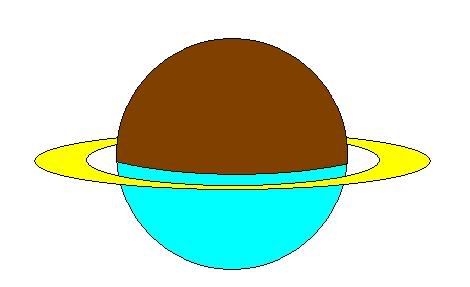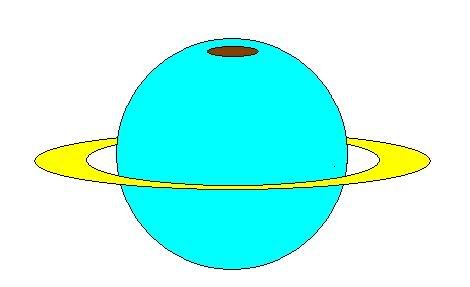What is an island?
Do you remember those general knowledge quizzes in primary school when the teacher asks “which is the world’s largest island?”
Your friend, whom you are obviously rooting for, answers “Greenland.” You feel a tinge of relief that he has hit it on the right spot.
The other contestant, a pimply faced girl with her annoyingly whiny voice and an aura of stuck-upness, puts in her answer as “Australia.” You breath a sign of relief; you friend will be getting one point. More importantly, the girl would not be getting a point.
Then the teacher proceeds to award the girl one point for giving the correct answer.
“What the hell! Australia is a continent, not a bloody island!” you think to yourself. Shaking with rage caused by this severe injustice, you vow to revolutionise the definition of island.
Over the course of what remains of your primary school years, you come up with a foolproof definition of island, one that is not mutually exclusive with the definition of “continent”. Having done that, you try to convince the world to adopt your superior definition of island. Of course, you fail. You find that, to your great dismay, people are not willing to change, and in a society with the self-reinforcing habits of gossip and media, a new definition of island will not survive unless pushed by a very large and dedicated group.
Society’s reluctance and apparent stupidity drives you into a prolonged period of brooding moodiness. There goes your chance of changing humanity before the age of twelve. Yes, you could try harder and you might just do it next year, but twelve is such a significant year.
If you had done it before twelve, people would be saying, “Look! There’s the boy who revolutionised the definition of island, and he still pays half price to eat at buffet dinners.”
Thirteen. What is so special about thirteen? The tabloids announce “he revolutionised the definition of island before he even got his driving license.” They never say “just a little over 12.” And thirteen year old kids pay full price at dinners.
And so you give up trying to make a change, and meld into secondary school.
***
What is an island?
The mother of all English dictionaries, the Oxford English Dictionary, tells us that an island is “a piece of land completely surrounded by water.”
Then shouldn’t the largest island be the Africa-Asia-Europe landmass?
***
On a separate but partially related note, it is possible to design a world with only one lake and one island.
Returning to quote from the mother of all English dictionaries:
The concept of having only one lake and one island is daft only if you use plane geometry. If instead you consider a finite but unbounded surface, it is perfectly doable. The earth’s surface is an example of a finite unbounded surface. Its area is finite, but you can never fall off the surface no matter how far you travel in any direction.
A symmetrical lake/island scenario would be to have the northern hemisphere of a planet covered with dry land, and the southern hemisphere with water. This being the case, the equator would be the boundary between the land and water. The shoreline.

Like all cool planets, this planet has a ring around it. Scientists suspect that the vivid yellow is due to the fact that the ring consists of many lemons orbiting the planet.
The water completely surrounds the land. We have an island. Yet the island completely surrounds the water. We also have a lake.
To further illustrate the validity of this lake/island scenario, you could make the landmass bigger by shifting the shoreline towards the south. It should become bleeding obvious that the body of water is actually a lake.
Similarly, you could make the body of water larger by shifting the shoreline north, and making the landmass smaller until it becomes painfully obvious that it is an island.

Personal
Your friend, whom you are obviously rooting for, answers “Greenland.” You feel a tinge of relief that he has hit it on the right spot.
The other contestant, a pimply faced girl with her annoyingly whiny voice and an aura of stuck-upness, puts in her answer as “Australia.” You breath a sign of relief; you friend will be getting one point. More importantly, the girl would not be getting a point.
Then the teacher proceeds to award the girl one point for giving the correct answer.
“What the hell! Australia is a continent, not a bloody island!” you think to yourself. Shaking with rage caused by this severe injustice, you vow to revolutionise the definition of island.
Over the course of what remains of your primary school years, you come up with a foolproof definition of island, one that is not mutually exclusive with the definition of “continent”. Having done that, you try to convince the world to adopt your superior definition of island. Of course, you fail. You find that, to your great dismay, people are not willing to change, and in a society with the self-reinforcing habits of gossip and media, a new definition of island will not survive unless pushed by a very large and dedicated group.
Society’s reluctance and apparent stupidity drives you into a prolonged period of brooding moodiness. There goes your chance of changing humanity before the age of twelve. Yes, you could try harder and you might just do it next year, but twelve is such a significant year.
If you had done it before twelve, people would be saying, “Look! There’s the boy who revolutionised the definition of island, and he still pays half price to eat at buffet dinners.”
Thirteen. What is so special about thirteen? The tabloids announce “he revolutionised the definition of island before he even got his driving license.” They never say “just a little over 12.” And thirteen year old kids pay full price at dinners.
And so you give up trying to make a change, and meld into secondary school.
What is an island?
The mother of all English dictionaries, the Oxford English Dictionary, tells us that an island is “a piece of land completely surrounded by water.”
Then shouldn’t the largest island be the Africa-Asia-Europe landmass?
On a separate but partially related note, it is possible to design a world with only one lake and one island.
Returning to quote from the mother of all English dictionaries:
Island- a piece of land completely surrounded by water
Lake- a large body of water entirely surrounded by land
The concept of having only one lake and one island is daft only if you use plane geometry. If instead you consider a finite but unbounded surface, it is perfectly doable. The earth’s surface is an example of a finite unbounded surface. Its area is finite, but you can never fall off the surface no matter how far you travel in any direction.
A symmetrical lake/island scenario would be to have the northern hemisphere of a planet covered with dry land, and the southern hemisphere with water. This being the case, the equator would be the boundary between the land and water. The shoreline.

Like all cool planets, this planet has a ring around it. Scientists suspect that the vivid yellow is due to the fact that the ring consists of many lemons orbiting the planet.
The water completely surrounds the land. We have an island. Yet the island completely surrounds the water. We also have a lake.
To further illustrate the validity of this lake/island scenario, you could make the landmass bigger by shifting the shoreline towards the south. It should become bleeding obvious that the body of water is actually a lake.
Similarly, you could make the body of water larger by shifting the shoreline north, and making the landmass smaller until it becomes painfully obvious that it is an island.

Personal

<< Home